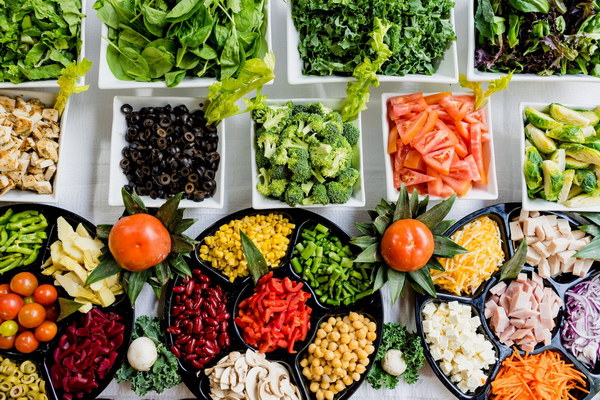Debunking the Myths What You Need to Know About Noodles and Stomach Health
In recent years, the belief that noodles are good for the stomach has become quite popular. However, is this belief based on fact or fiction? This article aims to shed light on the common misconceptions surrounding noodles and their impact on stomach health.
Misconception 1: Noodles are easily digestible and beneficial for the stomach
One of the most widespread misconceptions is that noodles are easy to digest and, therefore, good for the stomach. While it's true that noodles are made from wheat, which is a starchy food, the process of digestion varies depending on the type of noodles and the individual's digestive system.
In reality, the digestibility of noodles can vary greatly. For instance, white noodles are more easily digested than whole wheat noodles due to their lower fiber content. However, this doesn't necessarily make them more beneficial for the stomach. The high glycemic index of white noodles can lead to rapid spikes in blood sugar levels, which may cause discomfort or indigestion for some people.

Misconception 2: Noodles are a good source of energy and can help with weight loss
Another common misconception is that noodles are a good source of energy and can aid in weight loss. While it's true that noodles contain carbohydrates, which provide energy, consuming them in excess can lead to weight gain rather than loss.
Moreover, the type of noodles consumed plays a significant role in their impact on weight. For example, whole wheat noodles contain more fiber and nutrients than white noodles, making them a healthier option. However, even whole wheat noodles should be consumed in moderation to prevent overindulgence and potential stomach issues.
Misconception 3: Noodles can help with constipation
Some people believe that consuming noodles can help alleviate constipation. While it's true that the fiber content in whole wheat noodles can aid in digestion, the high starch content in white noodles can actually exacerbate constipation.
The key to using noodles to help with constipation is to choose the right type and prepare them properly. For instance, whole wheat noodles can be a good option, but they should be cooked until they are soft and well-cooked to maximize their fiber content and aid in digestion.
Misconception 4: Noodles are a good source of protein
Contrary to popular belief, noodles are not a good source of protein. In fact, they contain minimal protein compared to other food sources. This means that relying on noodles as a primary protein source is not advisable for those looking to maintain or build muscle.
Instead, to ensure a balanced diet and support stomach health, it is important to incorporate a variety of protein-rich foods, such as lean meats, fish, eggs, legumes, and dairy products, into your meals.
Conclusion
In conclusion, the belief that noodles are beneficial for the stomach is a myth. While they can be a part of a balanced diet, it is essential to be aware of the potential pitfalls and choose the right type of noodles for your digestive health. Remember to consume them in moderation and pair them with other nutrient-rich foods to ensure a well-rounded and healthy diet.









